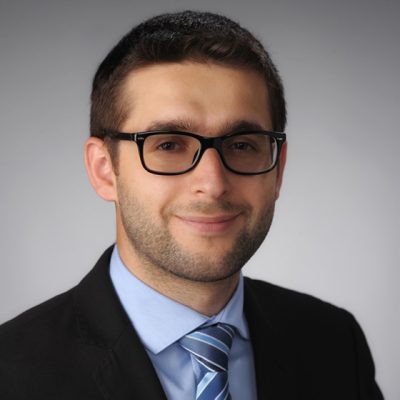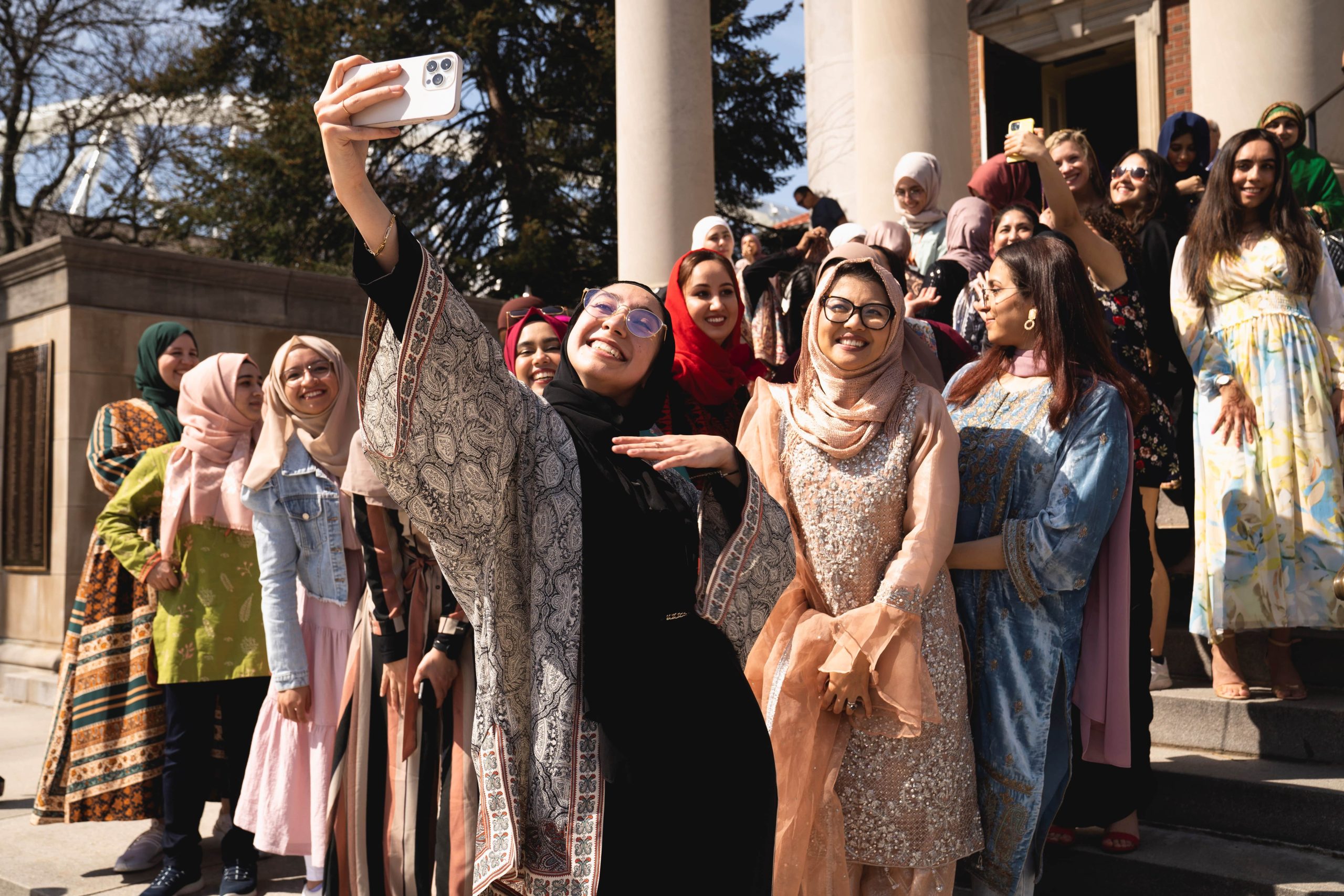The Power of Faith: Fostering Community for Muslim Students With Imam Amir Durić (Podcast)
Source: https://news.syr.edu/blog/2024/03/12/the-power-of-faith-fostering-community-for-muslim-students-with-imam-amir-duric-podcast/
Episode: https://podcasters.spotify.com/pod/show/cuseconversations/episodes/How-Imam-Amir-Duri-Is-Enhancing-the-Muslim-Student-Experience-e2gvaq6?%24web_only=true
As imam and Muslim chaplain, Amir Durić fosters community and togetherness. His research focuses on supporting and enhancing the Muslim student experiences on college campuses across the country.
As a faith leader, an imam is the one who proceeds, the one who stands in front and leads the mosque’s worshippers as a role model.
A deeply religious man, Amir Durić knew he was meant to serve as a faith leader when he was a child and his grandfather called upon him to lead his family’s daily prayers during the holy month of Ramadan. It is a time when observant Muslims around the world come together in hopes of increasing their consciousness, self-awareness and empathy through fasting daily from dawn to sunset and worship that elevate their spirituality.
Durić gathered the courage to deliver the prayers, and soon after accepting the responsibility, he started noticing a newfound love and passion for the spiritual life. Durić had found his calling.

Amir Duric
“With faith, I am on the receiving end of timeless and divine wisdom that really broadens my horizons beyond this temporary world. My faith motivates me to be a better citizen of this world, because I have a role to play, and that role is not just about me, but about those around me as well,” says Durić, the imam at Hendricks Chapel. In his role, he is responsible for fostering a sense of community and togetherness among the students who practice Islam on campus.
Since 2017, Durić has led efforts to enhance and improve the Muslim student experience on college campuses across the country. He is currently pursuing a doctoral degree in interdisciplinary social science through the Maxwell School of Citizenship and Public Affairs.
With the holy month of Ramadan underway, Durić stopped by to share his thoughts on the role an Imam plays on campus, describe the core tenets of Islam and address the biggest misconceptions surrounding the religion. He also discusses his groundbreaking research on the Muslim student experiences on college campuses across the country and explains how an interfaith collaboration with Rabbi Ethan Bair brought together Muslim and Jewish students to learn more about each other’s beliefs and values.
Check out episode 159 of the “’Cuse Conversations” podcast featuring Durić. A transcript [PDF] is also available.
-
01
How do you help our Muslim students continue their faith life or reconnect with their faith?

Imam Amir Durić has led initiatives and efforts that help Muslim students on campus feel a sense of community and togetherness.
For many students, our Muslim campus community is home away from home. That community plays an integral part in their college experience, and because of that, my focus always was on developing a vibrant community where students feel supported and understood. Having that community contributes to a sense of belonging, but also the confidence to be your whole self. This is different from just congregating or coming to do a prayer together. That’s why it requires full presence, it requires consistency in programming, care for each member of the community and support from our campus partners.
Faith is an integral part in the holistic development of many college students, as it helps them form as a whole person. Keeping in mind that Islam is a way of life that guide our decisions, words and actions, for many students, faith is the most salient or integral part of their identity formation and character development.
-
02
How powerful was it to see Muslim and Jewish students come together to learn more about each other’s beliefs and values during the dialogue fellowship?
We wanted to create something where we could bring students together to learn more about each other. If we really pay attention, we see that many issues are a product of not knowing enough about each other or just relying on assumptions or a lack of information, which leads to people not even trying to get to know someone, instead jumping to conclusions.
We took a group of 10 Jewish students and 10 Muslim students for a four-week dialogue fellowship where they really had an opportunity to get to know each other, to share how they experience their faith traditions and how they live those traditions at Syracuse University.
Our third session was about antisemitism and Islamophobia, and in our fourth session, we provided space for them to discuss the conflict happening in the Middle East. We anticipated that that conversation would happen after building trust among the participants, and it was a very engaging and respectful conversation.
-
03
What is the significance of Ramadan and what can our students, faculty and staff expect over the course of the next month?
Ramadan is the ninth month of the Islamic calendar. It’s usually known as the month of the Quran and the month of fasting since observing Muslims abstain from food, drink and desires from dawn to sunset. Among the objectives are increasing one’s consciousness, self-awareness and empathy through fasting and practices that elevate one’s spirituality. Ramadan really helps Muslims to become the best version of themselves.
Since the beginning of Ramadan overlaps with spring break, we’ll start our services on campus on Sunday, March 17. The Muslim Student Association, in partnership with the Muslim Chaplaincy, Hendricks Chapel and other on- and off-campus partners, will provide iftars, or sunset meals, to break the fast every night from March 17 through Tuesday, April 9. We’ll also hold Taraweeh Prayers, a special night prayer specific to Ramadan, every night at 9 p.m. in the main chapel starting on March 17. For students with meal plans, prepackaged morning meals will be available in Ernie Davis Hall the next morning, and the private dining area will be reserved throughout Ramadan for students to break their fast together in one place.
Because Ramadan is the season when family and community come together, we hope these accommodations will help our Muslim students who are away from their families feel supported on campus. Finally, we’ll conclude Ramadan with an Eid Service and Eid Celebration on Wednesday, April 10, in Hendricks Chapel.

